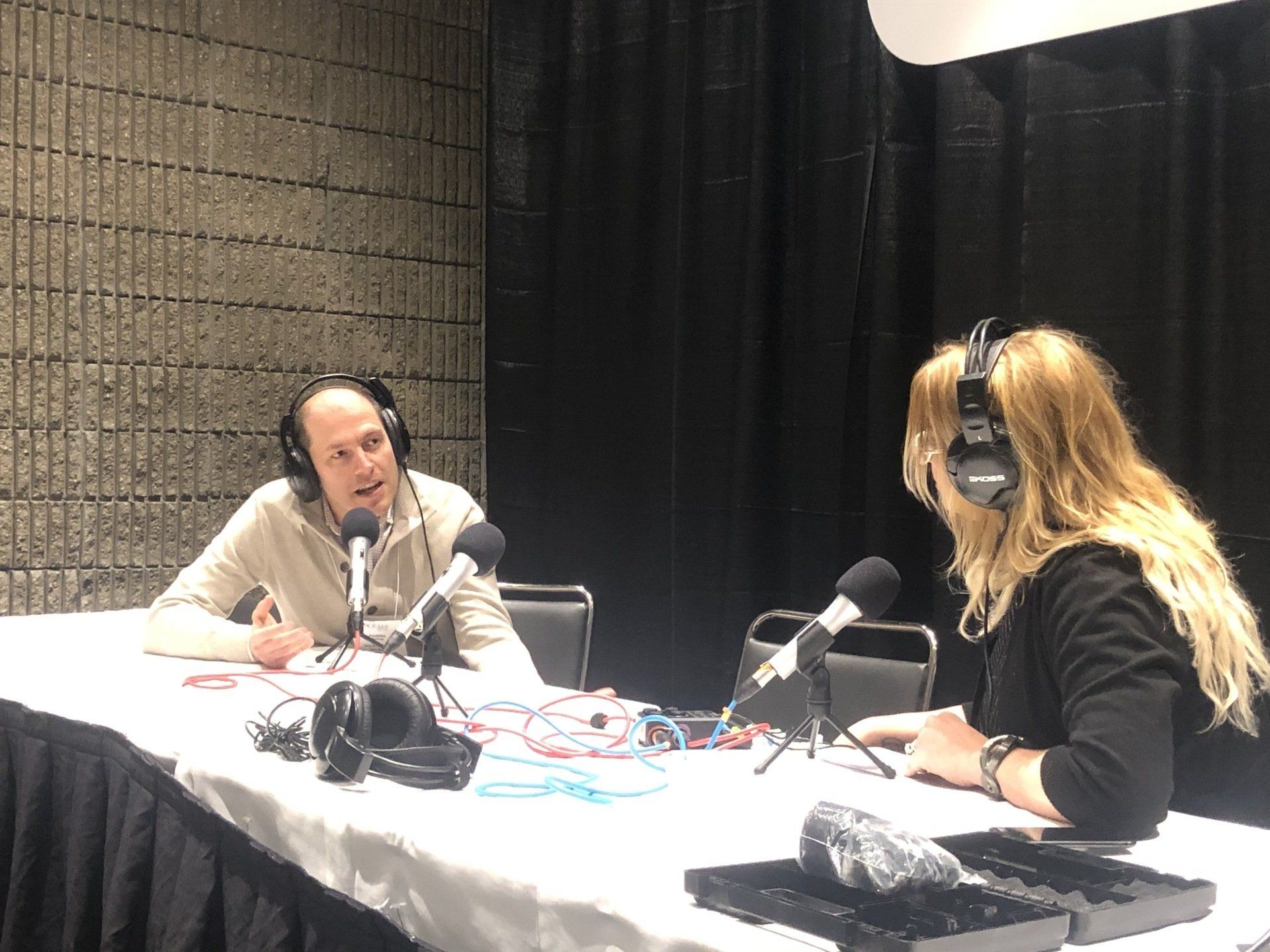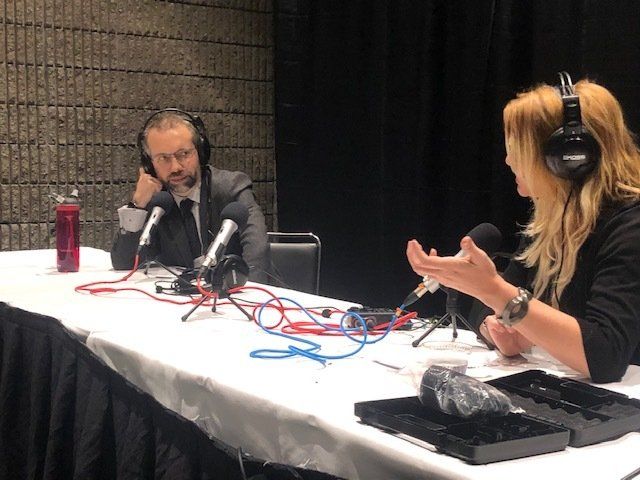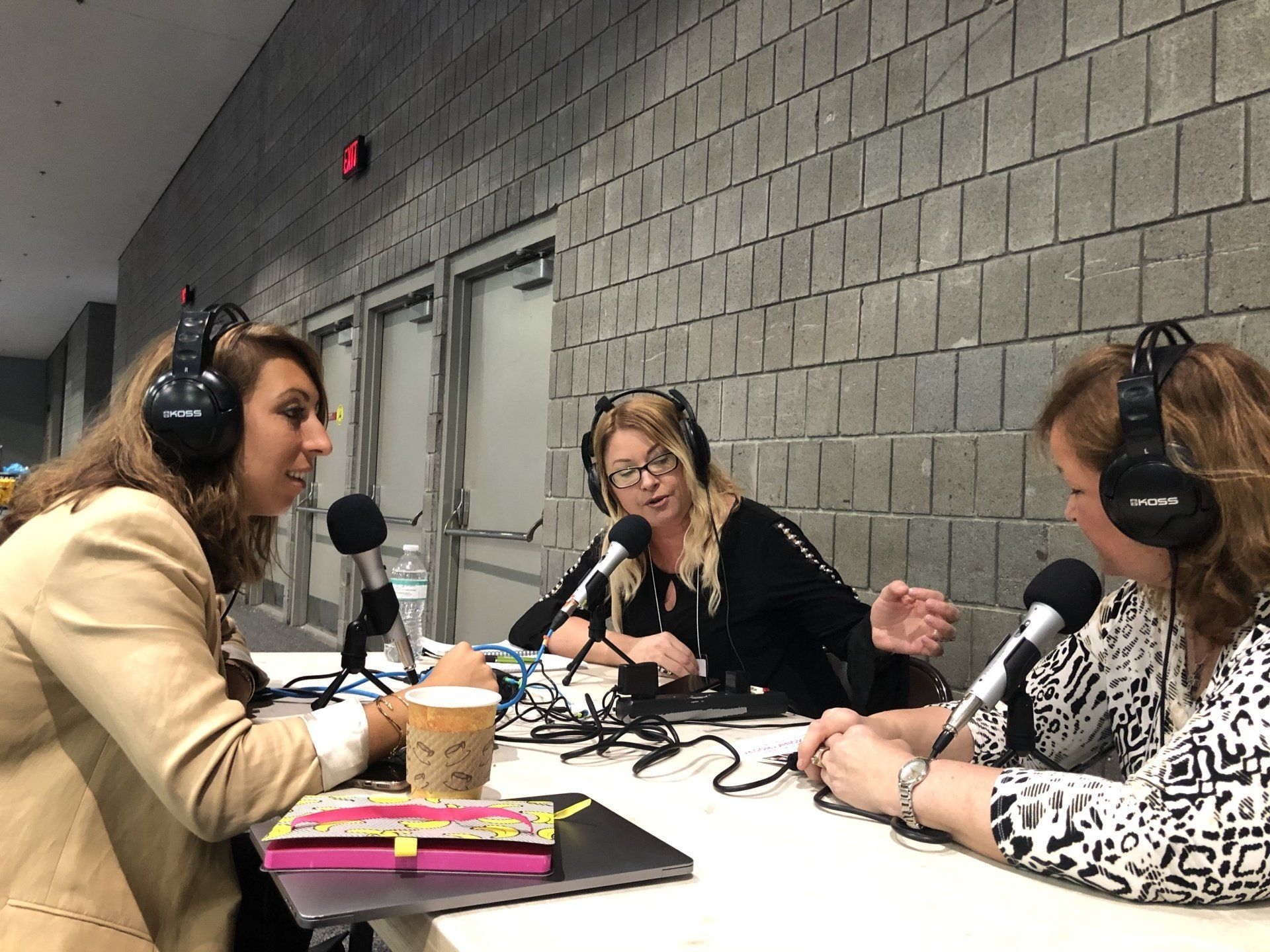AiArthritis Voices 360 Revisited
Highlights from the Experts: Patients, Researchers, & Rheumies
AiArthritis Voices 360 Full Episode #22
Air Date: April 5, 2020
Welcome to AiArthritis Voices 360. This week the show is celebrating 40 brilliant episodes by revisiting some of our previous conversations with experts in the field of autoimmune and autoinflammatory rheumatic diseases. We have featured rheumatologists, clinical researchers, and medical anthropologists in addition to our many patient co-hosts with expertise of their own. If you are new to the show, this will give you an opportunity to catch up on what our experts had to say about their work. Tune in and then join us to add your voice to these ongoing conversations.
You can find, follow, and listen on Podbean, Spotify, Apple Podcast, or where ever you do podcasts. Please follow, rate, and subscribe to the show, then share it with someone. Be sure to check out our top-rated show on Feedspot!
Pull up your seat at the table
Now it's YOUR TURN to join the conversation!
What do you think about this episode?
We want to know what you think! By continuing the conversation with your opinions and perspectives - we all get a better understanding of the problems facing our community. Better yet, through these conversations we can start working and developing solutions.
We mean it when say 360. Not only do we want your input anytime and anywhere, but we also are eager to see where the conversation will take us. So please, "pull up a seat at the table" and let's start talking!
Email us at podcast@aiarthritis.org, message us on social media (find us by searching for @IFAiArthritis)
Continue the conversation in our own AiArthritis Voices 360 Talk Show Group!
Pull up a seat and join the conversation on the topic from today and past episodes. You may even get an opportunity to talk directly with the co-hosts and any episode guests!
The AiArthritis Voices Program
Our AiArthritis Voices 360 Talk Show is just a piece of larger program - the AiArthritis Voices Program.
AiArthritis Voices is our program where people living with AiArthritis diseases and other stakeholders who we need 'at the table' to solve problems that impact education, advocacy, and research sign up to have a voice in our initiatives.
If you want to get more involved, and see more of the opportunities we have for you (and all stakeholders) please check out the AiArthritis Voices Program. Unite with others around the world to talk, learn, and connect.
Show Notes: Episode 22
00:52 - Tiffany welcomes listeners to the show
01:02 - Today’s episode will be a highlight reel featuring four of the episodes that have previously aired on AiArthritis Voices 360 for those who may have missed them
02:40 - Tiffany introduces Dr. Apostolos Kontzias from the Center of Autoinflammatory Diseases
03:12 - Dr. Kontzias explains the distinction between autoimmune and autoinflammatory, which both stem from the immune system, just different sides (“innate” vs “acquired”)
04:32 - Autoinflammatory patients usually lack laboratory markers for autoimmune disease - despite inflammatory symptoms - which can cause a diagnostic delay
04:55 - Both autoimmune patients and autoinflammatory patients can present with arthritis and other common features (fatigue, varying degrees of fevers)
05:48 - Autoinflammatory syndromes are innate (of unknown cause, from the primal part of the immune system) and thus can present early in life, but some do not present until adulthood
07:14 - Either type of immune response may be initially triggered by environmental factors, but also environmental factors can trigger disease activity
07:44 - Viral infections can trigger autoinflammatory syndromes
07:57 - Menstruation can trigger increases in symptoms for female patients for either type of disease
08:27 - Some conditions “bridge” the two types and can have features of both adaptive and innate immunity.
09:46 - By definition, patients with autoinflammatory conditions have an immune system that does not recognize the patient’s own structural components of their cells
10:49 - Fevers and rashes are often markers for autoinflammatory conditions. General markers for inflammation without laboratory results that support traditional autoimmune diagnoses are also predictive of autoinflammatory conditions
13:09 - Tiffany thanks Dr. Kontzias for his time
13:21 - Tiffany welcomes Kaleb Michaud from FORWARD Databank
13:49 - Registries monitor patient journeys to benefit scientific understanding of rheumatic diseases
14:51 - Kaleb explains his decision to become a medical researcher
16:07 - Tracking patient symptoms over time can lead to more accurate diagnosis and treatment because patients may not be aware of incremental progression
17:48 - Long questionnaires encourage patients to thoroughly interrogate their own health and reflect on how they are doing
18:44 - One patient, Mary Felstiner, wrote a book titled Out of Joint about the experience of completing the questionnaires.
21:20 - People who participate in registry studies statistically live longer than patients who choose not to participate.
22:15 - Tiffany is joined by patient co-host Deb Constein and Dr. Aurélie Najm, a rheumatologist and clinical researcher currently serving as the co-chair for the European League Against Rheumatism’s Synovitis Study Group
22:49 – Aurélie introduces herself
22:57 - She is researching providing tailored treatments to patients with rheumatoid arthritis
23:27 - Aurélie is the co-chair of the EULAR Synovitis Study Group, which is studying synovial tissue to determine the best treatment for each patient
24:07 - Tiffany and Deb are patient research partners for OMERACT
25:37 - Patterns of inflammation within the synovial tissue can predict the future evolution of disease for that patient and which anti-rheumatic drugs may be more effective for that patient
26:45 - AiArthritis is interested in this research because we support anything that reduces delays in getting patients access to the right treatment
28:00 - Deb discusses her experience with joint biopsy procedures
30:38 - The two methods available for obtaining synovial samples from joint spaces are arthroscopic or ultrasound guided biopsy
32:13 - Explaining the purpose of any procedure to the patient, especially when procedures are for clinical research and not necessity, is critically important.
33:40 - Volunteering for procedures to support clinical research is “an investment in the future.”
34:35 - Our organization seeks to help researchers develop the right protocols to recruit patient participants
34:54 - Visit aiarthritis.org/podcast to learn how you can help
35:14 - Tiffany introduces special guests Dr. Alfred Kim and Jerik Leung, who have done research on patient needs and communication barriers
35:56 - Tiffany explains the goals of the Rheumy Rounds Series
36:54 - Jerik’s research showed that patient goals did not always align with the physician’s goals, especially relating to medications and side effects
38:44 - Dr. Kim says the primary goal of rheumatologists is to determine what is actually going on with the patient. Are additional testing or imaging studies necessary? Are the notes from the previous doctor or patient provided information enough?
39:35 - Practicing Rheumatology is somewhat similar to practicing psychiatry in that there are usually not clear cut answers divined from test results. The physician has to review as much information as possible to arrive at a correct diagnosis.
40:34 - Rheumatologists must also prepare to have a difficult conversation with patients if the diagnosis doesn’t align with what they have been told previously or what they believe or don’t believe they have
41:11 - Sometimes patients arrive at a new doctor with incorrect information in their chart because a previous doctor had to use a certain diagnosis - even if it wasn’t the correct one - so the patient could get access to a needed medication
42:30 - For many physicians, the emotional aspects of the disease aren’t actionable from a clinical perspective.
43:14 - Patients may be on the defensive at the outset of appointments due to previous negative interactions with rheumatologists
44:06 - Learning to advocate for yourself is necessary for patients living with chronic illnesses
46:06 - Mutual trust is critical between the patient and physician
46:59 - Occupational therapy support may increase patient compliance with their treatment plan and help them and their caregivers achieve a better quality of life
47:40 - Physicians may not address complaints from patients that they are not equipped to handle, but they should be able to refer the patient to someone who can help them
49:01 - Most common reasons people “fire” their doctor: they feel unheard or treatments are not meeting their expectations
50:27 - Both doctors and patients could potentially benefit from training on how to interact positively and productively with each other
52:56 - Tiffany invites listeners to join our new Facebook group @IFAiArthritis to get involved
Patient Voices and All Other Stakeholders - Join our AiArthritis Voices Program and Connect to Opportunities to Have Your Voice Counted!
If you are a patient, a parent of a juvenile patient, or any other stakeholder (doctor, nurse, researcher, industry representative, or other health services person) - are you ready to join the conversation? It's your turn to pull up a seat. Join our new AiArthritis Voices program, where people living with AiArthritis diseases and other stakeholders who we need 'at the table' to solve problems that impact education, advocacy, and research sign up to have a voice in our initiatives. By signing up, you’ll get notified of opportunities to be more involved with this show - including submitting post-episode comments and gaining insider information on future show topics. Patients and all other stakeholders are encouraged to join so we can match you with opportunities to pull up a seat and TOGETHER - as equals - solve the problems of today and tomorrow.
AiArthritis Voices 360 is produced by the International Foundation for Autoimmune and Autoinflammatory Arthritis. Visit us on the web at www.aiarthritis.org/talkshow. Find us on Twitter, Instagram, TikTok, or Facebook (@ifAiArthritis) or email us (podcast@aiarthritis.org).
Be sure to check out our top-rated show on Feedspot!
Your Co-Hosts & Guests: Who is at the table this episode?
Tiffany Westrich-Robertson
Tiffany is the CEO at International Foundation for AiArthritis and uses her professional expertise in mind-mapping and problem solving to help others, like her, who live with AiArthritis diseases work in unison to identify and solve unresolved community issues. For the last several years, she has continued her education in research, including becoming a professional focus group moderator, and translated this experience at our organization to develop award-winning, innovative projects that are taking patient engagement to next levels.
Tiffany has served on several advisory boards, including those to advance patient voices in policy, clinical trials, and precision medicine. In addition to reviewing grants at PCORI and for the Department of Defense, she was the sole patient grant reviewer for the National Institute of Arthritis and Musculoskeletal and Skin diseases from 2015-2018. She currently participates as a Patient Research Partner for OMERACT (Outcome Measures in Rheumatology), co-leads our organizations' international effort to advance patient voices in rheumatology research (the ACTion Council) and has dedicated her professional career to developing other patients to utilize their voices to impact the future of millions.
Autoimmune vs Autoinflammatory
With Dr. Apostolos Kontzias, Center of Autoinflammatory Diseases
Navigating Your Health with Registries
With Kaleb Michaud, PhD, FORWARD: National Data Bank for Rheumatic Diseases
Changing the World with Your Knee
With Dr. Aurélie Najm, Outcome Measures in Research (OMERACT) & European League Against Rheumatism (EUlAR)
Rheumy Rounds (Ep 1 & 2)
With Dr. Al Kim, Washington University Rheumatology. We condensed 2 hours into 14 minutes - listen to both shows in their entirety.
Love the show? Help us make sure we stay on the air by making a donation.
Your contribution helps us continue the work we do every day to improve the lives of millions worldwide.











